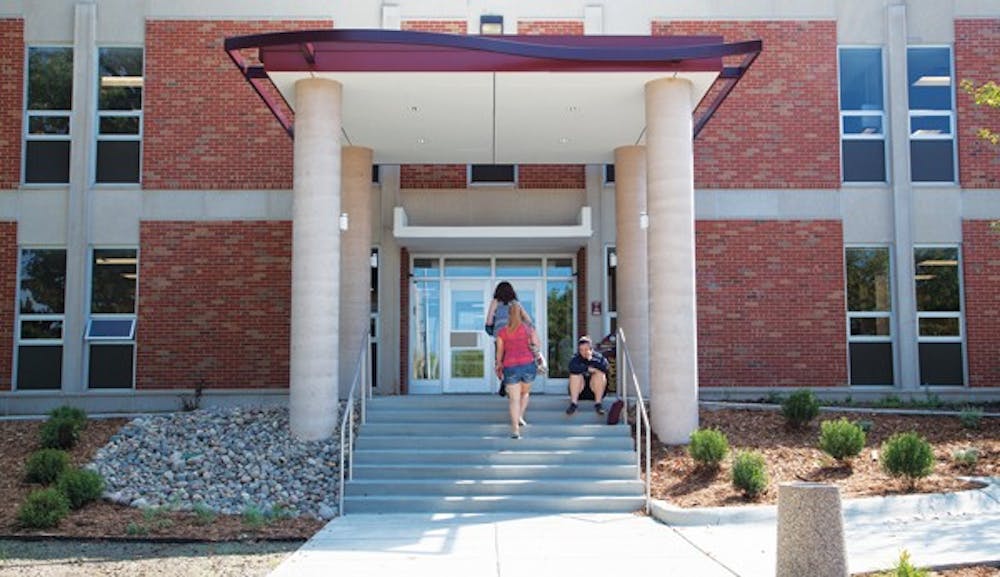Changes to Anspach Quad, campus tours discussed at final campus identity forum

The final campus identity project master planning forum helped galvanize new tangible ideas on how to get the most use out of Central Michigan University's open spaces.
The three-day forum gave students, faculty, staff and community members the opportunity to see some of the ideas AECOM Technology Corporation had in improving campus as part of the campus identity project.
A variety of ideas for different uses of open space were presented, with the focus centering on student interaction.
One area in particular was the Anspach Quad. Potential design changes for the area included a small tower navigating pedestrians throughout campus, as well as the addition of new trees and other landscape touches.
Another main focus was the Admissions and Library walks.
Pete Sechler, director of urban design and master planning in AECOM’s Orlando, Fla. office, showcased designs which would help in improving the first impressions of perspective students during campus tours.
“There are some problems and the admissions folks were very clear with us that they have some points on this route where they either have to divert your attention, or have some sort of uncomfortable explanation,” Sechler said. “Lets not lose them before we've got them.”
Some of the cosmetic areas of concern include the back of the Bovee University Center and myriad parking lots with open dumpsters.
Sechler said better signage, shielding certain areas from view and other landscape fixes could help solve the problem.
Among the approximately 20 people in attendance at the March 6 forum was Linda Slater, director of plant engineering and planning.
“They always have a vision which is bigger than mine,” Slater said of the AECOM designers. “It was good that they were able to broaden my vision as well as those on campus.”
AECOM made a presentation to University President George Ross and top administrators before the wrap-up.
“There are a couple small details they would like us to continue working on refining, but that’s completely reasonable,” Sechler said. “I think they were generally very happy with the direction we are headed in.”



